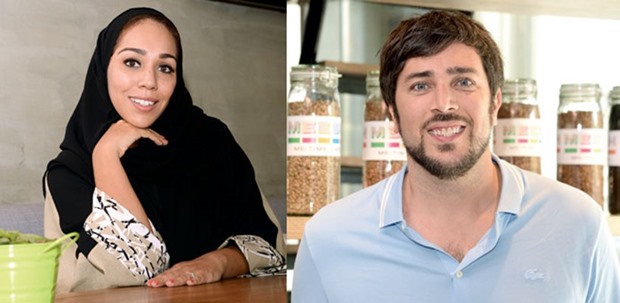Aiming for food safety certifications such as the Hazard Analysis and Critical Control Point (HACCP) would help elevate the standards of companies in Qatar’s food and beverage (F&B) sector, a Qatari-American entrepreneur has said.
Qatar’s government has stepped up efforts on health and food safety to safeguard the public from food contamination, according to Layla al-Dorani, the founder of Raw Middle East, a local company that produces 100% all-natural fruit and vegetable juice drinks.
“As company owners, it is also our duty to make sure that both the government and our customers trust the food and other products that we distribute in the market, said al-Dorani, who told Gulf Times that Raw Middle East is now HACCP-certified.
According to the US Food and Drug Administration, “HACCP is a management system in which food safety is addressed through the analysis and control of biological, chemical, and physical hazards from raw material production, procurement and handling, to manufacturing, distribution, and consumption of the finished product.”
“We want to make sure that we do not take any risks, which is why Raw Middle East is committed to ensure the safety of our consumers by producing and distributing products that are free from any type of contamination and hazards, hence we applied for HACCP,” she stressed.
As an HACCP-certified company, al-Dorani said Raw Middle East now applies a system that guarantees “the highest standards in safety and food management, which other F&B companies in Qatar should also provide to customers.”
“The Baladiya’s consumer protection programmes have inspired us to look at everything from point A to Z – such how we source our raw produce, how it’s cleaned and washed, our manufacturing process, bottling, and the way we deliver the final product to our customers,” she emphasised.
This was echoed by managing partner Gabe Glennon, who said: “We’ve taken one step further to make sure that there’s no chance for any food contamination; and getting everybody in that same kind of mindset is where HACCP plays a significant role in putting our standards a notch higher and take it to that next level.”
Al-Dorani noted that there are HACCP managers in Qatar whose services could be tapped by other F&B establishments for food safety certification. By setting an example and sharing her experiences to others, al-Dorani said she hopes to encourage more companies to become HACCP-certified.
“As the new generation of entrepreneurs, we have to aim for international standards and best practices. We should push ourselves a step further to become the best that we can be,” she said.
Glennon emphasised that Raw Middle East “is in coalition” with the state’s campaign on safe food handling, “which is why we felt the need to get HACCP-certified, and this gives us the assurance that we deliver the safest products.”
Al-Dorani added: “We support Baladiya and the government’s initiatives to make sure consumers are protected and safe…being awarded an HACCP certificate has improved our systems and we’re really proud of that accomplishment. We’re hoping these extra steps we’ve taken could help inspire other companies to do the same.”

Al-Dorani: Trust is key. Right: Glennon: Significant role. PICTURES: Thajudheen

